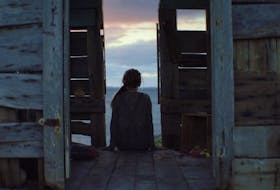Aside from the glaring tragedy — four lives taken, others left with permanent serious injuries, the wider trauma done to any small place by a school shooting — what’s striking about the La Loche, Sask., case that was Thursday argued at the Saskatchewan Court of Appeal is how hideously normal is the level of dysfunction in the remote Dene community in northwest Saskatchewan, and how bloody scarce the resources to do anything about it.
On Jan. 22, 2016, a young man just two weeks shy of his 18th birthday shot and killed two cousins — one 13, one 17 — in their home while they were all on their lunch break from school, then took his aunt’s truck, returned to the school, where he shot seven others, two of them, teacher Adam Wood and teacher’s assistant Marie Janvier, fatally.
The teen, who can’t be identified because of a mandatory publication ban under the Youth Criminal Justice Act, was sentenced last year as an adult, which means he was given life imprisonment with no parole for 10 years.
By comparison, a youth sentence would mean a maximum of six years in custody, followed by a supervision order for another four years.
His lawyer, Aaron Fox, is appealing the sentence, arguing that trial Judge Janet McIvor was overwhelmed by the horror of what happened and “lost sight” of what would actually help the teen and that he did have the requisite “diminished moral blameworthiness” that the young are presumed in law to have.
The young man, now 20, had been identified as needing a lot of help from Grade 1 on and psycho-assessments done in grades 3 and 6 found him hyperactive and well below average.
That last one, which found him at a Grade 3 reading level and Grade 2 in math, this when he was 12, recommended special education and occupational therapy. There’s no evidence anything of the sort happened.
To some degree, he was doomed from the get-go.
His biological mother frequently drank alcohol in large quantities while she was pregnant with him.
This was belatedly confirmed by interviews with family members in the preparation of what’s called a Gladue report, a sort of pre-sentencing report for Aboriginal offenders.
Two doctors, who testified at the trial, later sent a letter to the court confirming their diagnosis that the teenager in fact had fetal alcohol spectrum disorder, or FASD, the term used to describe the range of effects that can occur in someone whose mother drank during pregnancy.
Virtually everyone exposed to alcohol in utero has some brain dysfunction, including difficulty understanding abstract concepts, inability to predict outcomes, inability to see another person’s perspective and what’s called “dysmaturity,” which refers to the failure of FASD individuals to meet society’s age-based social and academic expectations.
RDF, as he is identified in McIvor’s decision, had all that going on and more.
Because his mother couldn’t care for him, he was raised by his aunt. She, another aunt and his grandparents seem to have been a supportive but enabling presence in his life: The grandparents rarely said no to him; one aunt gave him her truck whenever he wanted it, despite the fact he didn’t have a driver’s licence, and occasionally even drove him to his dealer’s.
“I just drove him there and gave him money to go in and get it,” she told the Gladue report author. “Everybody smokes weed here. It’s just a common thing.”
At school, the boy was doing miserably. At the time of the shooting, he was in Grade 10 for the third time. His attendance — over 50 per cent — was somehow considered “good,” even though he was often either late or missed classes once he got to school.
He found schoolwork confusing. His adoptive mother wasn’t aware of any concerns and “wasn’t sure what he did there.” As he told one of the doctors, what he mostly did was pace the halls. He played video games.
He had a cruel nickname, which referred to an aspect of his looks; he denied it was hurtful. Despite rumours he’d been bullied, he denied that too. He was happy with his life, he said, if anyone asked. He claimed he had lots of friends.
In October of 2016, just nine months after the shooting, he pleaded guilty. He was willing, Fox says, “to talk to anybody who would talk to him,” to get help.
For two years, he sat in custody. He got no help.
He’s in maximum security at a federal institution now. He has received no counselling.
“I practise in Regina, my kids went to school here,” Aaron Fox said Thursday after court, in a phone interview.
“If my kids were going to school and having the problems he had … the resources that would have been available … they didn’t have it there (in La Loche).”
The boy’s homeroom teacher, who really liked him and wanted him to pass just one course, so he’d get a taste of success, said, “he was just one of those kids and there was no help. They don’t have the services.”
It was an absolutely horrific case.
For reasons none of the doctors understand, or the young man himself, he has “impaired remorse and empathy.” As his older cousin lay dying, begging “Don’t shoot me,” RDF shot him again in the head. At a youth facility, as the one-year anniversary of the shooting approached, he asked his worker, “You buying me a gift for the anniversary?”
As Fox said, “He wasn’t the only one (in La Loche), but this was a kid who did have special problems that were identified in Grade 1 and nothing was done.”
To add to the already awful toll then, one more.
• Email: [email protected] | Twitter: blatchkiki
Copyright Postmedia Network Inc., 2019









